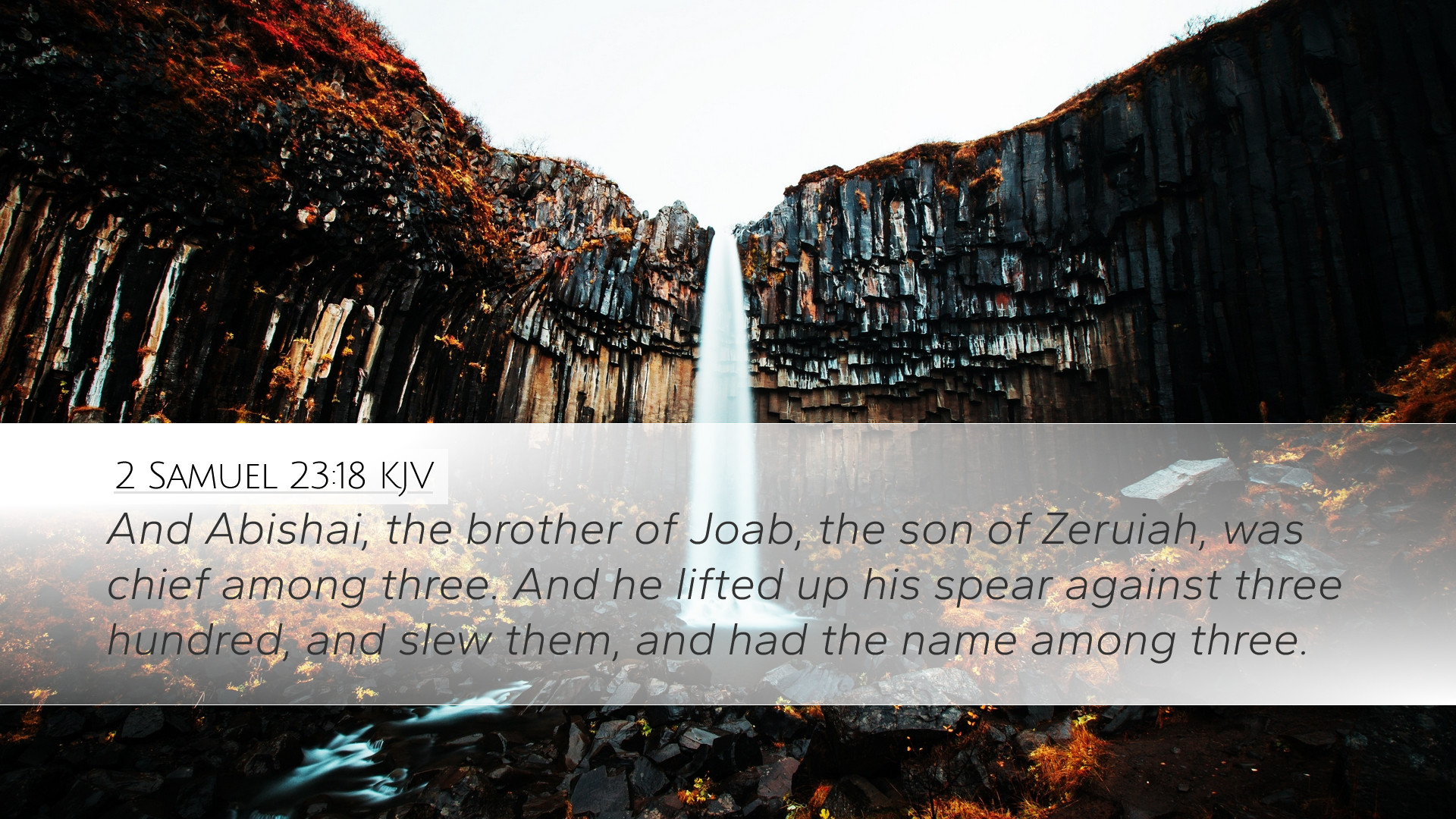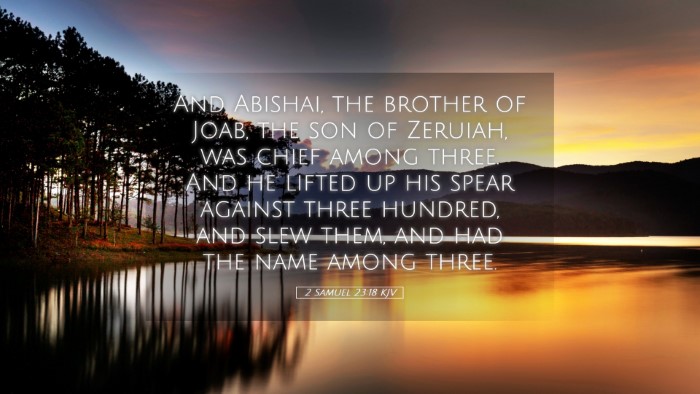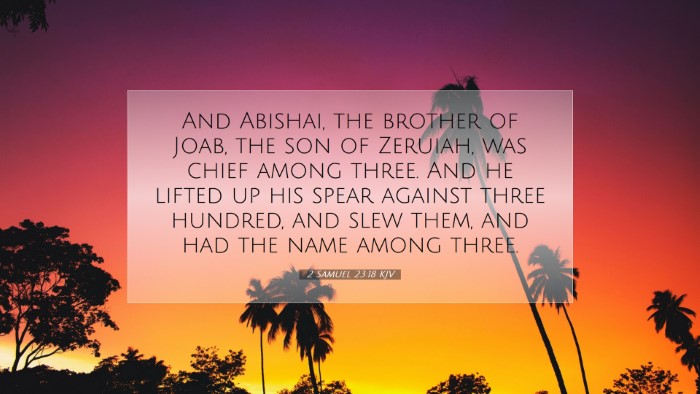Commentary on 2 Samuel 23:18
Verse: "And Abishai the brother of Joab, the son of Zeruiah, was chief among three. And he lifted up his spear against three hundred and slew them, and had the name among three." (2 Samuel 23:18)
Introduction
The verse of 2 Samuel 23:18 highlights the valor and prowess of Abishai, one of David’s mighty men. It captures not only a historical account of military heroism but also theological themes that resonate deeply within the Christian faith. This commentary draws insights from esteemed public domain sources, spotlighting the significance of Abishai's actions within the larger narrative of David's reign and the nature of strength and leadership in the biblical context.
Contextual Background
In the historical context of 2 Samuel, the nation of Israel was undergoing significant changes under King David’s leadership. David’s reign is marked by both triumphs and trials, and the accounts of his mighty men serve to illustrate the kinds of valor and loyalty that characterized his administration. Abishai, as outlined in this verse, is identified as a chief among the “three,” a term that connotates not only physical might but also the loyalty and faithfulness exemplified by those who served David.
Analysis of the Text
The verse begins with a significant identification: "Abishai the brother of Joab, the son of Zeruiah," establishing lineage and relational complexity. Abishai’s relationship with Joab and his ancestry through Zeruiah not only situate him within the context of David's family but also highlight themes of loyalty and rivalry among David’s commanders.
Chief Among Three
To be "chief among three" is indicative of stature and reputation. Matthew Henry notes that being chief suggests both authority and remarkable achievement among his peers. Abishai’s leadership is emphasized through his capabilities in battle, which rendered him a formidable figure in David's ranks.
The Act of Valor
In describing how “he lifted up his spear against three hundred and slew them,” we witness an embodiment of bravery and skill. Albert Barnes emphasizes the supernatural nature of such a feat, suggesting that divine strength bolstered his efforts. The killing of three hundred men is a significant act, transcending typical human capabilities, pointing towards God’s empowerment of His chosen leaders during times of crisis.
Legacy and Recognition
Abishai earned "the name among three," a reference to his esteemed status. This recognition speaks to the importance of legacy within the biblical narrative. Adam Clarke suggests that honors in the biblical context were not merely accolades but were tied to one’s character and fidelity to God and His anointed leaders. The marvel of Abishai’s courage serves as an archetype for future generations of soldiers and believers. His name becomes synonymous with loyalty and bravery.
Theological Implications
This brief narrative extends beyond mere historical documentation; it invites theological reflection on several levels:
- Divine Empowerment: The account highlights how God equips His servants to face overwhelming odds. Abishai's victory is a testament to God's providence in the midst of battle.
- Loyalty and Honor: Abishai’s loyalty to David and his willingness to defend him presents a biblical model for relationships within the community of faith. It calls on believers to recognize the importance of supporting and defending their leaders.
- Identity and Legacy: Just as Abishai was remembered for his bravery, Christians are encouraged to consider the legacy they are building. What will they be remembered for in their service to God and others?
Conclusion
In conclusion, 2 Samuel 23:18 encapsulates the valorous nature of Abishai and presents profound lessons not only for leaders and warriors in the faith but also for all believers. The intersection of historical narrative with themes of divine empowerment, loyalty, and legacy serves to inspire a deeper understanding of communal commitment in service to God's purpose. As scholars and pastors reflect on this passage, may they draw from Abishai's life a renewed resolve to embody courage and faithful service.


